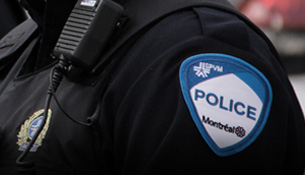
Online Safety for Children
For children, the Internet is an interesting way to learn, have fun, keep in touch with their friends and classmates, and just relax and explore. But just like the real world, the online world can be dangerous for kids, especially in terms of pedophilia and cyberbullying.
Prevention tips
Before you let your children surf the net alone, it is crucial that you set rules, and then it is up to you, as a parent, to keep an eye on what your children are doing online. Here are a few safety tips to help you make sure your children stay safe on the Internet:
- Learn how the Internet works. The best way to find out how your children are using the Internet is to get interested and surf with them.
- Encourage your children to tell you about their online experiences the same way they tell you about what they do with their friends in the non-virtual world.
- Establish a set of family Internet rules and talk to your children about the dangers they may be exposed to, such as pedophilia.
- Remind your children that they must never reveal personal information without your permission (name, address, phone, etc.).
- Explain that they must never agree to meet an online friend in person.
- Encourage your children to use nicknames that don't reveal any identifying information (gender, age, etc.).
- Put the computer in a room that is accessible to the entire family, so your children will not be surfing alone. Don't put a computer in your child's bedroom.
- Supervise your children's online activities. For example, you can pre-select websites of interest, review the browsing history, check whether the webcam is being used, monitor your children's access to electronic communications (chat, email, messaging), and install a parental control filter.
What to do?
If you notice changes in your child's appearance, behaviour or activities, bring it up with the child and share your concerns. The way you approach the subject will determine your child's reaction and your chances of finding out more. If you suspect your child is involved in a potentially dangerous online activity, don't hesitate to contact your police service.
Find out more
Cybertip is a Canada-wide tipline for reporting the online sexual exploitation of children. The service is provided by the Canadian Centre for Child Protection, a charitable organization devoted to the personal safety of children.
The website offers age-specific Internet safety tips (5-7, 8-9, 10-12 and 13-15 years old), along with a description of the developmental personality of children at these ages and their main online activities.
Operated by the Canadian Centre for Child Protection, ProtectKidsOnline.ca is designed to assist parents/guardians in protecting their children on the Internet and reducing their risk of victimization.
Webaware is a national public information Internet safety program run by the Media Awareness Network. It promotes two goals:
- Inform parents of the dangers of cyberspace for their children and the need to take safety measures
- Give parents information and practical tools, so they can manage their children's Internet use and teach their children to be safe and savvy surfers



